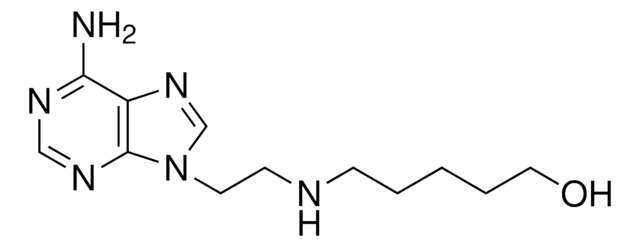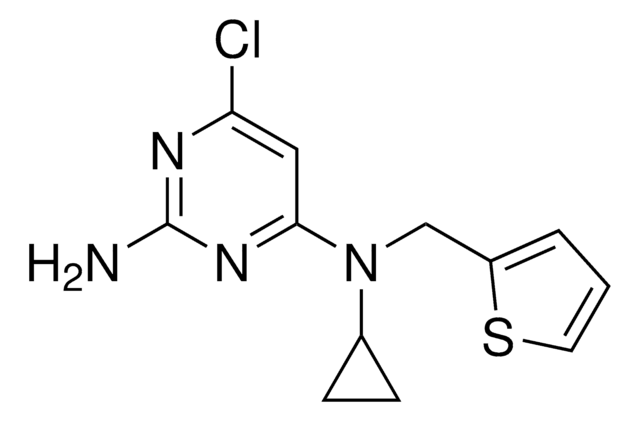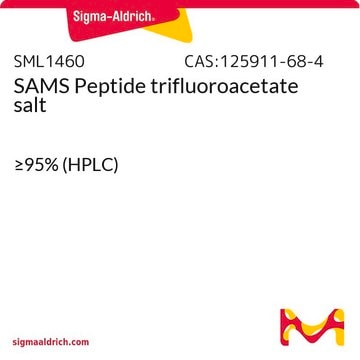SML2109
ST034307
≥98% (HPLC)
Synonym(s):
6-Chloro-2-(trichloromethyl)-4H-1-benzopyran-4-one, 6-Chloro-2-(trichloromethyl)chromen-4-one
Sign Into View Organizational & Contract Pricing
All Photos(1)
About This Item
Empirical Formula (Hill Notation):
C10H4Cl4O2
CAS Number:
Molecular Weight:
297.95
MDL number:
UNSPSC Code:
12352200
NACRES:
NA.77
Recommended Products
Assay
≥98% (HPLC)
form
powder
color
faint green to dark gray
solubility
DMSO: 2 mg/mL, clear (warmed)
storage temp.
−20°C
SMILES string
ClC(Cl)(Cl)C1=CC(C2=CC(Cl)=CC=C2O1)=O
Biochem/physiol Actions
ST034307 is a selective inhibitor of adenylyl cyclase 1 (AC1) with analgesic activity. Adenylyl cyclase 1 has been shown to be a potential target for treating pain and reducing the dependency on opioids, but it has been difficult to inhibit AC1 selectively without also inhibiting other isoforms vital to physiological functions. ST034307 is selective for AC1 over all eight other adenylyl cyclase isoforms. It inhibited AC1 and reduced cAMP, while leaving AC8 unaffected and was shown to reduce pain in a mouse inflammatory pain model.
Storage Class Code
11 - Combustible Solids
WGK
WGK 3
Certificates of Analysis (COA)
Search for Certificates of Analysis (COA) by entering the products Lot/Batch Number. Lot and Batch Numbers can be found on a product’s label following the words ‘Lot’ or ‘Batch’.
Already Own This Product?
Find documentation for the products that you have recently purchased in the Document Library.
Xiang Li et al.
Microbiology (Reading, England), 170(6) (2024-06-25)
Bacterial infection is a dynamic process resulting in a heterogenous population of infected and uninfected cells. These cells respond differently based on their bacterial load and duration of infection. In the case of infection of macrophages with Crohn's disease (CD)
Tarsis F Brust et al.
Science signaling, 10(467) (2017-02-23)
Adenylyl cyclase 1 (AC1) belongs to a group of adenylyl cyclases (ACs) that are stimulated by calcium in a calmodulin-dependent manner. Studies with AC1 knockout mice suggest that inhibitors of AC1 may be useful for treating pain and opioid dependence.
Our team of scientists has experience in all areas of research including Life Science, Material Science, Chemical Synthesis, Chromatography, Analytical and many others.
Contact Technical Service







